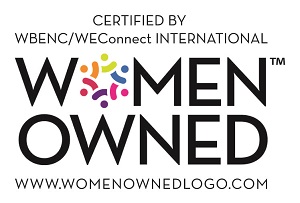How to become an effective Compliance Officer at your company
Published on
“Compliance officer” is a broad term. There are various types of compliance officers across several industries like government, healthcare, employment, and more. But, there are common threads, regardless of industry, required to be effective in the job.
A compliance officer ensures a company acts legally. In the past, compliance officers were isolated to a small number of industries. However, they are becoming an important part of many corporate organizations. So, why the uptick in compliance officers? And why do compliance officers need to be concerned with the Americans with Disabilities Act (ADA) and other laws?
For example, the Department of Justice (DOJ) oversees ADA Compliance. Through lawsuits, settlement agreements, or mediation, many organizations are required “to designate an ADA coordinator” and/or “provide annual ADA training”. This is in addition to fines, penalties, and damages. The ADA Coordinator is on your payroll. You can hire whomever you want, but that individual has to work in tandem with the DOJ as they oversee your ADA compliance efforts.
But that’s only for ADA compliance and since you have to be concerned with multiple forms of compliance, how can you make sure you are (or you have) a capable compliance officer?
Play for multiple teams
Compliance officers work for the large organization, and go to bat for the smaller populations that the law protects, which can be conflicting. Some compliance officers are privy to the budget and finances it takes to make the machine run, while others are solely at meetings to advise management on compliance laws and regulations. Overall, while the compliance officer might have access to these aspects of the company they MUST act in the best interest of the public.
Make the best team
The ideal compliance officer can plan, organize, and coordinate responsibilities. Odds are you don’t know everything on General Data Protection Regulation (GDPR), Americans with Disabilities Act (ADA), Health Insurance Portability and Accountability Act of 1996 (HIPAA), Section 504 and Section 508 of the Rehabilitation Act of 1973, cybersecurity, document, and tech compliance. These are the most common standards and, depending on your industry, there may be more. But the powers that be trust you to interpret and carry out policies regarding these compliance issues. So, you need to build a team of contractors and subcontractors.
Reach out to companies who are ethical, secure, and thought leaders in each of those compliance spaces. Getting information is the first part of your action items, so know who is supplying your information. Ask them if they want to partner with your company and consider a signed contract on file. That way you know who to discuss information, weaknesses, breaches, and work that can’t be completed in-house.

(Insert Your Name) & Associates
You appreciate the law and are good at explaining things to any audience, an essential characteristic for establishing best practices. Compliance officers must know the company’s goals and culture, with industry and business law. Most industries are subject to changing legislation, so staying on top of things is vital to identifying the risks. Compliance officers make sure their organization complies with government regulations to avoid hefty fines, legal consequences and reputation damage.
Don’t drop the ball or rest it
Besides being a level-headed, and clear communicator of law and process, a compliance officer must be able to stand by difficult decisions. A compliance officer sees an issue through to the end. They don’t consider convenience over compliance. Problems don’t go away or resolve themselves, and it’s best to have a person in the position who won’t think so. That might mean that you bring the issue to every single weekly meeting until resolution, but you can do it. We believe in you.

Cut a bigger entrance
It is a compliance officer’s last job to keep participation (in-house and in the marketplace) to the greatest range of participants with no unnecessary barriers to entry and exit. And, what’s a greater range than everyone? So, cut a bigger entrance— physically, and especially, metaphorically. Doors used to be less than 36 inches wide but the ADA requires a door opening between 32 and 48 inches. And with wheelchairs ranging from 21” to 40” wide, this means people with wheelchairs, canes, guide dogs, children, temporary disabilities, and more can fit through your company’s entrance and be a customer. Bigger is better for physical and online entrances.
A compliance officer is precautionary and an organization’s first line of defense. If you do your job, your organization won’t end up in the news for corruption or substandard business ethics. You have teams that expect much of you, a group you assemble (of the very best service and partnerships), laws to know, and responsibilities that need persistence. You’ve got this!
Categorized in: Accessibility, Government, Informational, Uncategorized
This post was written by



Comments are closed here.